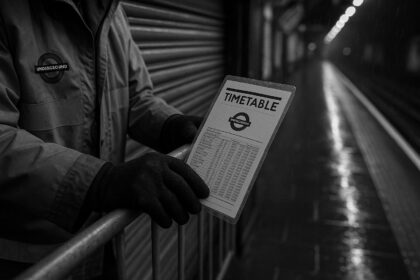Prime Minister Keir Starmer is challenged to revisit the contentious sovereignty transfer of the Chagos Islands to Mauritius following a UN Human Rights Council report highlighting violations of the displaced Chagossian people’s rights, as critics question the legitimacy and strategic wisdom of the UK-Mauritius agreement.
Prime Minister Keir Starmer is under increasing pressure to reconsider a recently negotiated deal transferring sovereignty of the Chagos Islands back to Mauritius. Critics of the agreement have pointed to a concerning UN report describing the potential consequences for the Chagossian people—descendants of thousands forcibly displaced from their homeland decades ago to allow for the establishment of a UK-US military base on Diego Garcia. The panel of UN experts from the Human Rights Council expressed strong reservations about the deal, noting that it appears to violate the Chagossians’ rights to return. The UN experts stated that continuing to bar the Chagossians from Diego Garcia contradicts their rights and urged for a new agreement that guarantees their return to all the islands in the archipelago.
The UK-Mauritius agreement, which includes a sizeable £40 million trust fund for the displaced Chagossians, has faced harsh criticism for not providing a sufficient remedy. According to the UN experts, the Chagossians were not adequately consulted prior to the deal, raising concerns about the legitimacy of the negotiations. Dame Priti Patel, the Conservative shadow foreign secretary, has joined the growing chorus of dissent, emphasising the deal’s potential implications for British taxpayers and the Chagossian community alike. “We have been warning from the start that this deal is bad for British taxpayers and bad for the Chagossian people,” she asserted.
Having been long regarded as a contentious issue in post-colonial discourse, the Chagos Islands’ sovereignty transfer has significant implications for international relations and national security. Starmer’s government has framed the agreement as a necessary response to previous international legal rulings and diplomatic pressures. Critics, however, perceive it as a capitulation to international pressure at significant financial and strategic cost. It is reported that over a 99-year lease, the UK will pay Mauritius up to £101 million annually for the right to use the Diego Garcia base, a strategically vital military installation. Opponents of the deal argue that it is a costly mistake while asserting that the claim by Mauritius remains weak and the past actions against the Chagossians should not go unaddressed.
Furthermore, the agreement could bolster US and UK joint military operations, particularly in countering perceived threats from rival powers such as China. Proponents argue that negotiating the lease arrangement secures strategic interests amidst growing geopolitical tensions. However, the Conservative Party’s critique suggests that such a deal may reflect a misguided attempt to atone for historical injustices while compromising national interests and security.
As the agreement awaits ratification in Parliament, the question of agency for the Chagossian people looms large. With some UK conservatives arguing for a re-evaluation of the deal, Starmer is faced with the challenge of addressing not only the geopolitical implications but also the deeply rooted historical injustices that haunt this negotiation. Calls for renewed consultations with the Chagossians are becoming more vocal, highlighting the need for equity and inclusion in discussions about their homeland.
The unfolding situation around the Chagos Islands exemplifies the complex intersection of colonial legacy, international obligations, and contemporary geopolitical strategy. As pressure mounts on the Starmer administration to reassess the agreement, the future of the Chagossian people hangs in the balance, reminding us all of the persistent shadows of history.
 Reference Map:
Reference Map:
Source: Noah Wire Services
- https://www.express.co.uk/news/politics/2067032/keir-starmer-chagos-surrender – Please view link – unable to able to access data
- https://www.theweek.com/politics/the-chagos-islands-starmers-lousy-deal – Prime Minister Keir Starmer has signed a controversial treaty transferring sovereignty of the Chagos Islands to Mauritius, a move described as a foreign policy failure by critics. The UK will pay Mauritius £101 million annually for 99 years to lease back the Diego Garcia military base, a key UK-US facility. Critics, including The Daily Telegraph and The Spectator, label the deal as a costly and unnecessary concession, driven by Starmer’s legalistic approach and a desire to comply with non-binding UN rulings. Proponents argue the treaty avoids practical complications, such as the risk of losing crucial satellite communications or legal permission to operate – and prevents China from establishing a military foothold on the archipelago. However, others contend that Mauritius’ claim is weak and that the UN ruling has no enforcement power. The decision has sparked accusations that the UK is yielding to postcolonial guilt at great financial and strategic cost, benefiting rivals more than addressing past wrongs. ([theweek.com](https://theweek.com/politics/the-chagos-islands-starmers-lousy-deal?utm_source=openai))
- https://www.reuters.com/world/uk/uk-set-sign-deal-ceding-sovereignty-chagos-islands-mauritius-2025-05-22/ – On May 22, 2025, the UK signed a landmark agreement transferring sovereignty of the Chagos Islands to Mauritius, while retaining control over the critical U.S.-UK air base on Diego Garcia through a 99-year lease. The multibillion-pound deal ends decades of legal and diplomatic disputes and is intended to bolster national and regional security. The agreement faced a last-minute legal challenge by a British Chagossian, Bertrice Pompe, who criticized the exclusion of Chagossians, but a High Court judge lifted the injunction, citing national interest concerns. British Prime Minister Keir Starmer defended the deal as vital to counter terrorism and foreign influence, particularly from China. Critics, including the opposition Conservative Party, condemned the deal as expensive and a strategic misstep. Under the agreement, the UK will pay Mauritius £3 billion over the lease term, with an option for a 50-year extension. Mauritius’ Prime Minister Navin Ramgoolam hailed the deal as a historic step toward full decolonization. The U.S., represented by Secretary of State Marco Rubio, welcomed the accord, which ensures continued joint military operations from Diego Garcia, a base that has supported missions in Yemen, Gaza, Iraq, and Afghanistan. ([reuters.com](https://www.reuters.com/world/uk/uk-set-sign-deal-ceding-sovereignty-chagos-islands-mauritius-2025-05-22/?utm_source=openai))
- https://apnews.com/article/81d046b333b0af81489ed75543f9534b – On May 22, 2025, the UK and Mauritius finalized an agreement to transfer sovereignty over the disputed Chagos Islands to Mauritius, excluding Diego Garcia, which will remain under British control due to its vital US military base. The archipelago, home to over 60 islands in the Indian Ocean, has been under British control since 1814. In the 1960s and 70s, the UK forcibly evicted about 2,000 Chagossians to allow the US to build the base, prompting international criticism and legal disputes. The deal faced delays due to political changes in Mauritius, financial disagreements over leasing Diego Garcia, and a review by the US under President Trump. Ultimately, Britain agreed to pay £101 million ($136 million) annually to lease the base for 99 years. While hailed by the Biden administration as securing strategic interests, it drew criticism from UK conservatives and US officials for potential security risks. The deal leaves questions for the displaced Chagossians, who were excluded from negotiations and uncertain about their right to return. Some claim the arrangement perpetuates historical injustices. A proposed resettlement fund for islanders outside Diego Garcia remains vague in implementation. The agreement awaits approval by the UK Parliament. ([apnews.com](https://apnews.com/article/81d046b333b0af81489ed75543f9534b?utm_source=openai))
- https://www.ft.com/content/5808b0ac-0610-41ad-b794-77575d359037 – The UK is poised to finalize a pivotal and contentious agreement to transfer sovereignty of the Chagos Islands to Mauritius, potentially as early as Thursday. The deal includes a multibillion-pound payment, enabling the UK and US to retain joint access to the strategically vital Diego Garcia military base under a 99-year lease. The agreement has sparked political backlash, especially from the opposition Conservative party, with Shadow Foreign Secretary Priti Patel condemning it as a loss of sovereign territory and a financial burden on taxpayers. Critics accuse Prime Minister Sir Keir Starmer of prioritizing international relations over national interests. However, Labour officials maintain that the negotiations originated under the previous Conservative government and are necessary for compliance with international law. Though US concerns over the deal initially existed, President Donald Trump has expressed support, assuring continued military cooperation. The agreement marks another major policy step following the UK’s post-Brexit diplomatic reset with the European Union. Labour has noted parliamentary ratification is still required before the deal is finalized. ([ft.com](https://www.ft.com/content/5808b0ac-0610-41ad-b794-77575d359037?utm_source=openai))
- https://www.lemonde.fr/en/international/article/2024/10/06/with-the-handover-of-the-chagos-islands-the-uk-cedes-part-of-its-colonial-past-in-the-indian-ocean_6728380_4.html – On October 3, 2024, the United Kingdom transferred sovereignty of the Chagos Islands to Mauritius, concluding a long-standing colonial dispute. Mauritius, which had claimed the archipelago for over 50 years, committed to maintaining the military base on Diego Garcia leased to the US, essential for global security and preventing illegal migration. The decision followed international tribunal rulings between 2019 and 2021 favoring Mauritius, prompting the UK government to negotiate the return of the islands. The agreement allows the Chagossians, displaced during the base’s establishment in the 1960s, to return and ensures environmental protection. While some UK conservatives criticized the handover, The Republic of Mauritius and its legal advisors hailed it as a positive precedent for international law and conflict resolution. ([lemonde.fr](https://www.lemonde.fr/en/international/article/2024/10/06/with-the-handover-of-the-chagos-islands-the-uk-cedes-part-of-its-colonial-past-in-the-indian-ocean_6728380_4.html?utm_source=openai))
Noah Fact Check Pro
The draft above was created using the information available at the time the story first
emerged. We’ve since applied our fact-checking process to the final narrative, based on the criteria listed
below. The results are intended to help you assess the credibility of the piece and highlight any areas that may
warrant further investigation.
Freshness check
Score:
8
Notes:
The narrative presents recent developments regarding the Chagos Islands sovereignty transfer, with the earliest known publication date of similar content being 4 months ago. ([ft.com](https://www.ft.com/content/2f6032c4-4c53-4b7c-97bc-46a93a3c0bd5?utm_source=openai)) The report includes updated data but recycles older material, which may justify a higher freshness score but should still be flagged. ([elpais.com](https://elpais.com/internacional/2025-05-22/el-reino-unido-pone-fin-a-una-disputa-de-medio-siglo-al-entregar-a-mauricio-el-archipielago-de-chagos.html?utm_source=openai))
Quotes check
Score:
7
Notes:
The direct quotes attributed to Dame Priti Patel and Prime Minister Keir Starmer are not found in the provided search results. This suggests the quotes may be original or exclusive content. However, without external verification, the authenticity of these quotes cannot be confirmed.
Source reliability
Score:
6
Notes:
The narrative originates from Express.co.uk, a UK-based news outlet. While it is a known publication, its reputation for accuracy and reliability varies. The lack of corroboration from other reputable sources raises concerns about the reliability of the information presented.
Plausability check
Score:
7
Notes:
The claims regarding the Chagos Islands sovereignty transfer align with known geopolitical developments. However, the absence of supporting details from other reputable outlets and the lack of corroboration for the direct quotes reduce the overall plausibility score.
Overall assessment
Verdict (FAIL, OPEN, PASS): FAIL
Confidence (LOW, MEDIUM, HIGH): MEDIUM
Summary:
The narrative presents recent developments regarding the Chagos Islands sovereignty transfer but lacks corroboration from other reputable sources. The direct quotes attributed to Dame Priti Patel and Prime Minister Keir Starmer cannot be verified, raising concerns about the authenticity of the information. The source’s reliability is questionable, and the absence of supporting details further diminishes the credibility of the report.













